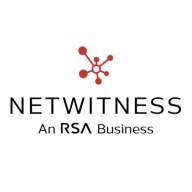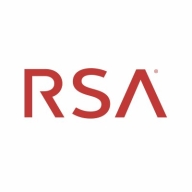

NetWitness Platform and RSA enVision are widely recognized in the realm of cybersecurity. Based on user reviews, NetWitness Platform excels in scalability and flexibility, whereas RSA enVision is preferred for its feature-rich offerings that provide comprehensive security insights.
Features: NetWitness Platform is praised for its advanced threat detection and investigation capabilities, while also being commended for its scalability and flexibility. RSA enVision is valued for its detailed log management, comprehensive reporting features, and extensive security insights.
Room for Improvement: Users suggest improving the complexity and learning curve associated with NetWitness Platform and the user interface. RSA enVision users mention the need for more streamlined integration processes, better customer support, and enhanced user interface experience.
Ease of Deployment and Customer Service: Users appreciate the relatively simple deployment model and customer service of NetWitness Platform. In contrast, RSA enVision faces criticism for cumbersome deployment processes and inconsistent support experiences.
Pricing and ROI: NetWitness Platform is seen as cost-effective with favorable ROI, whereas RSA enVision is perceived as expensive but justified by its comprehensive features. Although RSA enVision demands a higher upfront setup cost, NetWitness Platform's balance of cost and functionality is highly regarded.
| Product | Market Share (%) |
|---|---|
| RSA enVision | 0.6% |
| NetWitness Platform | 0.7% |
| Other | 98.7% |

| Company Size | Count |
|---|---|
| Small Business | 8 |
| Midsize Enterprise | 7 |
| Large Enterprise | 20 |
NetWitness Platform is an evolved SIEM and threat detection and response solution that functions as a single, unified platform for ALL your security data. It features an advanced analyst workbench for triaging alerts and incidents, and it orchestrates security operations programs end to end. In short: NetWitness Platform is all you need to run an intelligent SOC.
RSA enVision is a comprehensive security information and event management (SIEM) solution offered by RSA, a leading provider of cybersecurity solutions. It enables organizations to collect, analyze, and manage security event data from various sources, providing real-time visibility into their IT infrastructure. With RSA enVision, organizations can proactively detect and respond to security incidents, ensuring the protection of critical assets and sensitive data.
The solution offers a wide range of features, including log management, event correlation, threat intelligence, and compliance reporting. One of the key strengths of RSA enVision is its ability to collect and normalize data from diverse sources, such as network devices, servers, applications, and databases. This allows organizations to gain a holistic view of their security posture and identify potential threats or vulnerabilities.
The event correlation capabilities of RSA enVision enable the detection of complex attack patterns and the identification of potential security incidents. By analyzing events in real-time and correlating them with historical data, the solution can provide actionable insights and alerts to security teams, enabling them to respond quickly and effectively. RSA enVision also offers advanced threat intelligence capabilities, leveraging machine learning and behavioral analytics to identify anomalous activities and potential indicators of compromise. This helps organizations stay ahead of emerging threats and proactively mitigate risks.
RSA enVision provides comprehensive compliance reporting capabilities, helping organizations meet regulatory requirements and demonstrate adherence to industry standards. The solution offers pre-built compliance reports for various regulations, such as PCI DSS, HIPAA, and GDPR, simplifying the audit process and reducing compliance-related costs. In summary, RSA enVision is a powerful SIEM solution that enables organizations to effectively manage their security events, detect and respond to threats, and meet compliance requirements.
With its robust features and capabilities, it provides organizations with the necessary tools to enhance their cybersecurity posture and protect their critical assets.
We monitor all Security Information and Event Management (SIEM) reviews to prevent fraudulent reviews and keep review quality high. We do not post reviews by company employees or direct competitors. We validate each review for authenticity via cross-reference with LinkedIn, and personal follow-up with the reviewer when necessary.